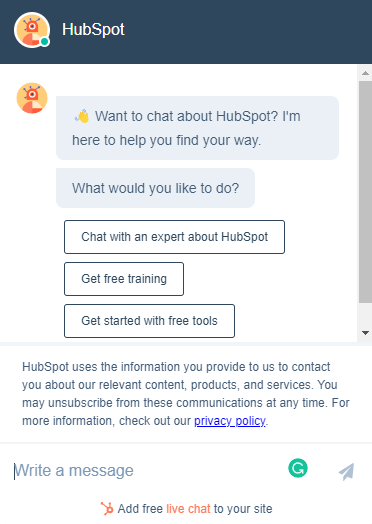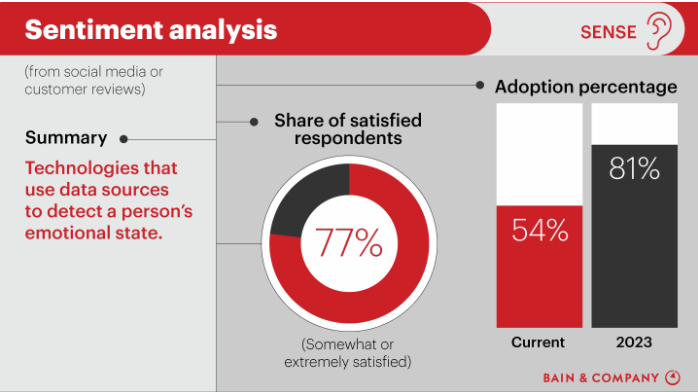From smartphones to website architecture, conversational artificial intelligence is all the rage. A subsection of AI, it understands what you say and can hold an intuitive conversation.
Modern consumers want quick answers and fast resolution – often an insurmountable task for the customer support staff. This is where conversational AI comes into play.
The technology combines the comfort of real-time conversational experience with the convenience of a quick resolution. Besides offering instant responses, it digs out the sentiment behind customer queries, helping brands understand their consumers better.
Using conversational AI is no more limited to top companies. Startups worldwide use this technology to accurately collect and process customer data and understand the market’s needs.
Today’s article will discuss how startups can use conversational AI to dive deep into the customer psyche and build a sustainable business.
How Conversational AI Can Help Startups Understand Their Customers Better
Analysis of customer conversations for insights
Analyzing customer sentiment is crucial for any business wanting to improve its services. But traditional surveys are not always enough to get conclusive insights.
Through advanced language algorithms, conversational AI platforms decipher the emotions in conversations across different channels. Companies can apply this technology across channels like – email, social media, chats, and in-app interactions.
Here are some actions conversational AI software takes to analyze customer chats:
- Identifies key emotional triggers that drive purchasing decisions.
- Examines the magnitude and polarity of the conversations.
- It detects positive, negative, and neutral customer feelings and quantifies the data.
Most conversational AI software includes an analytics dashboard where businesses can evaluate each detail of chatbot interactions. It gives companies insights and helps in data visualization to scale SaaS business. You understand what customers expect from your brand and how you can deliver a better service.
It also helps detect what contributes to your website’s bounce rate and what would keep the visitors engaged.
Identification of customer pain points
To deliver a satisfying customer experience, identifying and addressing different consumer pain points is essential. It helps in planning a personalized customer engagement strategy that adds real value.
Conversational AI analyzes historical data and enables you to zoom into the issues your customers face frequently. Through automated ticket classification, these platforms segment different pain points and help you prioritize the severe ones.
For example, if you got 200 queries about your refund policy, conversational AI can segment them accurately, helping you identify areas of improvement.
It also helps you track customer responses to emails, chats, and social media and see what parts of your customer service are not working for them.
Creation of buyer personas for targeted marketing
Conversational AI identifies query patterns and gauges the chances of conversion and repeat purchases. It evaluates your existing and potential customers and their interactions and comprehensively represents your company’s ideal customer.
This way, businesses can strategize and run accurate target marketing campaigns. It enables them to plan an experience that suits the buyer persona and create content that engages the core audience.
Improvement in customer retention and loyalty
Customer acquisition is an expensive process. Investing in onboarding customers and losing their business for some unnoticed issue can create significant roadblocks to your growth. Reports state poor customer service can cause 91% of customers to leave without warning.
Conversational AI platforms dig deep into customers’ sentiments and decode complex emotions. Identifying customers at risk of attrition allows companies to take care of issues before they escalate.
For example, a customer who thinks your service lacks personalization starts conversing on your website. Your conversation AI can detect the emotion and warn you through quantifiable data.
This way, you can improve the personalization of your services and marketing at your startup. You can send them special discount codes or contact them to address issues.
Use Cases of Conversational AI for Startups
Chatbots for customer service
Using the same old customer service methods is not enough for new-age consumers. They want instant responses that solve their query.
By integrating chatbots, companies can offer prompt services without overwhelming their human resource.
Instead of waiting for the next available executive, customers can text their concerns. These bots can satisfy queries and help customers make informed decisions at each touchpoint of their journey.

For example, HubSpot has a chatbot widget on the site’s home screen with a friendly message to let visitors know it’s there to assist.
Voice assistants for customer interactions
According to Juniper Research, digital voice assistants will go from 2.5 billion in 2018 to 8 billion in 2023.
Companies can humanize the interaction by including a voice assistant interface and give customers a better experience. Through voice bots, interaction, and the delivered information is more personalized, bringing people closer to the brand.
This type of conversational AI helps understand queries and respond in a near-human manner.
For example, Amazon’s Alexa and Google Assistant can recognize the voice and assist customers in finding and accessing their preferred content, websites, information, and more.
Social media listening and sentiment analysis
To enhance customer experience, start-ups must listen to what their customers say. The best way to do that is by tracking your target market’s conversations in different social spaces.

Social media listening and sentiment analysis are powerful in keeping a pulse on a rapidly shifting customer base. Statistics show that in 2020, 54% of companies adopted sentiment analysis technology. This number is expected to reach 81% by 2023.
Social listening tools help businesses track conversations about their brand and industry on virtual channels. Besides customer relationships, it also helps them benchmark performance against competitors and improve services.
Personalized recommendations based on customer data

According to reports, 59% of consumers from Europe and North America expect personalized experiences when shopping from their preferred brands. They are likelier to buy from you if they get relevant offers and recommendations.
AI tools can decode large data sets by analyzing customer-serving tickets, previous conversations, and purchase history. Instead of broad demographics, the system considers every conversation and finds patterns. This way, conversational AI accurately curates offers, content, and other resources to keep the customer engaged.
Best Practices for Implementing Conversational AI for Startups
We now have a fair idea of conversational AI and how it works. To get the best results for your startup, you need to follow:
Clearly defining goals and objectives
Before investing in a conversational AI, understand what service you want to deliver. Integrating this technology requires a clear vision of what you want to achieve. Otherwise, you will jump from one use case to another, seeing no tangible improvements.
Your objectives should decide the interaction model of your conversational AI. Start with a comprehensive answer sheet, where the priority is meeting your customer’s end goal.
Examine what areas of your business can use customer insights. This will help you focus your resources on issues that matter.
Choosing the right conversational AI platform
Every business is unique. Any tool you choose for your brand, whether conversational AI or other automation software, must fit your vision seamlessly. A bot that doesn’t match your website’s aesthetic or your brand will only harm your reputation.
Research thoroughly and choose a conversational AI platform that’s agile and aligns with your goals. It should accommodate your scalability and be fluid enough to fit different channels like emails, social media, texts, etc.
Conducting regular testing and optimization
Establishing effective bots across multiple channels is not a one-day process. Conversational AI learns with the information it gets from each conversation. Perfecting this alignment takes time, constant testing, and optimization for a start-up.
The best way to handle the uncertainty of applying conversational AI is to be agile. Measure changes the integration is bringing with each stage of improvement. See whether the improvements accommodate your growth plan. This will help you identify improvement opportunities and optimize the system.
Incorporating customer feedback into the conversational AI strategy
As discussed earlier, your customer is the priority. By incorporating their feedback, you can offer better personalization with each upgrade.
Once you set up a conversational AI for customer service, ensure you ask for customer feedback. Examine how their experience was and what could be better.
Conclusion
With the increasing adoption of AI, the last decade has seen a dramatic shift in the business landscape. As a part of this change, companies opt for conversational AI to deliver personalized customer service.
Emotion is the key factor of customer service – and conversational AI outperforms human interaction through efficiency and accuracy.
However, despite its many benefits, conversational AI brings its own set of challenges. Companies must ensure proper hardware and software before investing in conversation AI for the best results. Companies must also be careful about securing customer data and meeting privacy regulations.
To succeed in digital transformation, you need to understand the application of conversational AI. It can revolutionize the traditional outlook of customer service and drive engagement and retention with the right approach.
The post How Conversational AI Can Help Startups Better Understand Their Customers appeared first on Datafloq.

